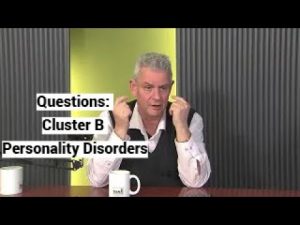Narcissist’s Relationship Cycle Decoded and What To Do About It – Part 1 of 3
Introduction and Seminar Structure
- The seminar is organized by Barbara Jura, focusing on narcissism with an analogy between black holes and narcissists to explain their psychological nature. The seminar duration is six hours, split into two parts discussing psychology and coping strategies with narcissists [00:00].
- The first part covers narcissistic psychology and relationship dynamics, while the second part will address coping during and after relationships [05:00].
Understanding Narcissism
- Narcissism is widely considered a personality disorder, but the speaker criticizes the terms “personality” and “disorder” as misleading, suggesting narcissism stems from complex childhood trauma during formative years (up to 6 years old) [07:30].
- Narcissists experience profound deficits due to emotional neglect or dysfunction from a “dead mother,” leading to arrested development and an inability to separate and individuate [11:00].
Psychological Profile of the Narcissist
- Narcissists use self-soothing behaviors often manifesting as addictions (e.g., alcohol, drugs, workaholism) to cope with prolonged grief over lost childhood potential [16:30].
- They exhibit repetition compulsion by repeating dysfunctional relationship patterns like idealization, devaluation, and discard, driven by compulsion rather than choice [18:15].
- Attachment styles tend to be avoidant or insecure with limited access to positive emotions, leading to flat attachment styles and emotional incapacity [22:00].
- Narcissists are discontinuous, shape-shifting, and dissociative with impaired memory and identity coherence, often fabricating narratives to defend their fragile self-concept [24:30].
- Their emotional regulation is impaired, showing inappropriate or reduced affect, and they seek control as a coping mechanism in chaotic early environments [29:20].
- Decompensation can occur as narcissistic injury or mortification, leading to mood disorders like depression and anxiety rather than typical acting out seen in borderlines [31:45].
- They possess cognitive distortions such as grandiosity, distorted reality testing, and internalize negative self-beliefs, resulting in negative identity and profound self-rejection [33:30].
- Narcissistic defenses include autoplastic (self-blame and shaming) and alloplastic (blaming others), creating an external locus of control and pervasive mistrust or paranoia [38:15].
- They operate with an internalized bad object dominating their self-view, causing estrangement from their true self and reliance on a false self for psychological survival [41:50].
- Narcissists catastrophize life events, engage in obsessive-compulsive rituals, and dissociate from their past and present, living largely in a future-oriented fantasy to avoid facing reality [47:00].
- Narcissism is described as a form of prolonged grief and loss of potential, analogous to a black hole consuming selfhood and emotional capacity [50:30].
Relationship Dynamics with Narcissists
- Relationships with narcissists follow a predictable cycle: love bombing (and grooming if psychopathic), honeymoon, idealization, devaluation, discard, replacement, and repetition compulsion [53:30].
- The narcissist’s relationships attempt to reenact unresolved conflicts with their own parental figures, particularly the “dead mother,” seeking to test and secure unconditional love as a mother figure [57:45].
- The narcissist creates a “shared fantasy” with the partner, often involving an illusory role as the nurturing mother, which the partner struggles to resist despite the toxic dynamics [1:00:00].
- The partner is drawn by the narcissist’s offer of “self-love,” but this is a misrepresentation stemming from the dual mothering/mothership dynamic where the narcissist expects to be mothered to facilitate his own failed individuation [1:03:00].
- Separation individuation theory explains the narcissist’s lifelong arrested development and the compulsive need to recreate childhood patterns with their partner to attempt a failed individuation process [1:05:30].
- The narcissist inevitably devalues and discards the partner to complete the separation phase from an empowered position, continuing the cycle compulsively [1:10:00].
Note: The timestamps [mm:ss] correspond to approximations of where topics were discussed in the provided transcript.






